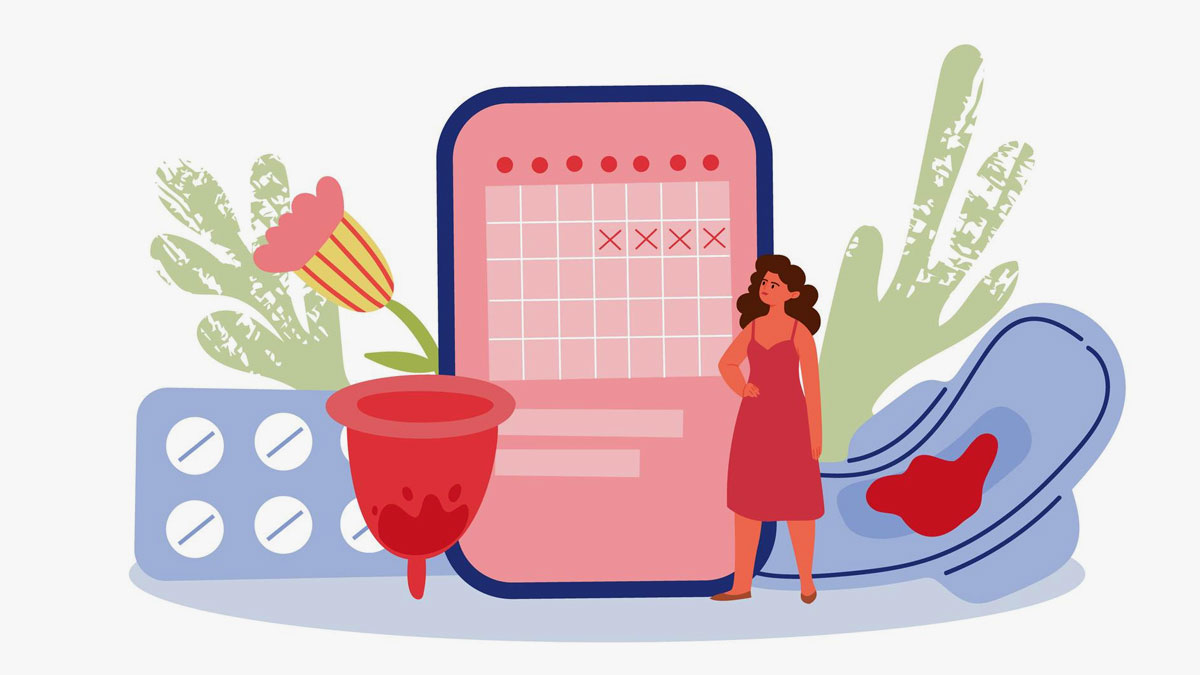
Any ailment that can impact your hormonal balance can directly or indirectly impact your menstrual and reproductive health. One of the most common health issues that people deal with these days is diabetes.
According to the National Library of Medicine, about 77 million people in India were already battling diabetes in 2019. Of those, 30 million are women. Hence, we spoke to Dr Ritambhara Bhalla, Associate Director - Gynaecologist and Obstetrician, Cloudnine Group of Hospitals, Chandigarh, and Dr Nivedita Gautam, Diabetes Specialist, Sriaas, to understand the effects of diabetes on periods.

Dr Bhalla says diabetes does not affect periods directly. However, he says that people managing the ailment are prone to infections, which can become difficult to control. They are also at high risk for endometrial cancer, which can present as abnormal uterine bleeding or post-menopausal bleeding.
Dr Gautam points out that high blood sugar levels often hamper reproductive hormones, which can cause irregular menstrual cycles or amenorrhea (absence of periods) sometimes.
Sugar levels mess with the levels of oestrogen and progesterone, which are sex hormones that regulate menstrual cycles. Moreover, women with Type 1 diabetes may experience irregularities in their menstrual cycle due to changes in the insulin levels that can affect ovaries.
Therefore, Dr Bhalla advises the prevention of sugar levels from going haywire in the body.
Don't Miss: How Your Periods Are Affecting Your Reproductive System

Dr Gautam shared with us that diabetes can cause hormonal imbalance, and thus, affect the menstrual cycle and ovulation. High levels of blood sugar can also lead to an increase in androgen, a male hormone, that can cause hirsutism (excessive hair growth at unwanted places like face, neck, etc.) and acne.
An imbalance in oestrogen can lead to weight gain, decreased libido, bloating, mood swings, irregular periods and menstrual cramps.
On the other hand, high levels of progesterone can cause breast tenderness, depression, anxiety, bloating, weight gain, agitation, low sex drive, and severe fatigue. Most of these symptoms are similar to premenstrual syndrome. Therefore, it becomes difficult to identify the reason behind the issue without intervention from the doctor.

All of this can even lead to polycystic ovary syndrome (PCOS), which can directly impact fertility and ovulation. Hence, indirectly, diabetes can impact a woman’s reproductive system as well. Dr Gautam also said, “High blood sugar levels can cause damage to the blood vessels and nerves in the pelvis, which can lead to problems with sexual function and fertility.”
Women with diabetes can suffer from complications during pregnancy. In some instances, it has been found to cause miscarriage or birth defects. Therefore, it is necessary to manage blood sugar levels.
Don't Miss: Gynaecologist Debunks Myths Around Pregnancy Diet
You do not have to be alarmed if you have diabetes. All you need is a team of good doctors monitoring your diabetes as well as pregnancy. If you follow the right diet, take your medicines on time, exercise as advised, and follow the guidelines laid down by an expert, you can have a healthy pregnancy and deliver a healthy baby without complications.
Diabetes needs management. If you are able to do that, you can live long without any issues.
Our aim is to provide accurate, safe and expert verified information through our articles and social media handles. The remedies, advice and tips mentioned here are for general information only. Please consult your expert before trying any kind of health, beauty, life hacks or astrology related tips. For any feedback or complaint, contact us at compliant_gro@jagrannewmedia.com.